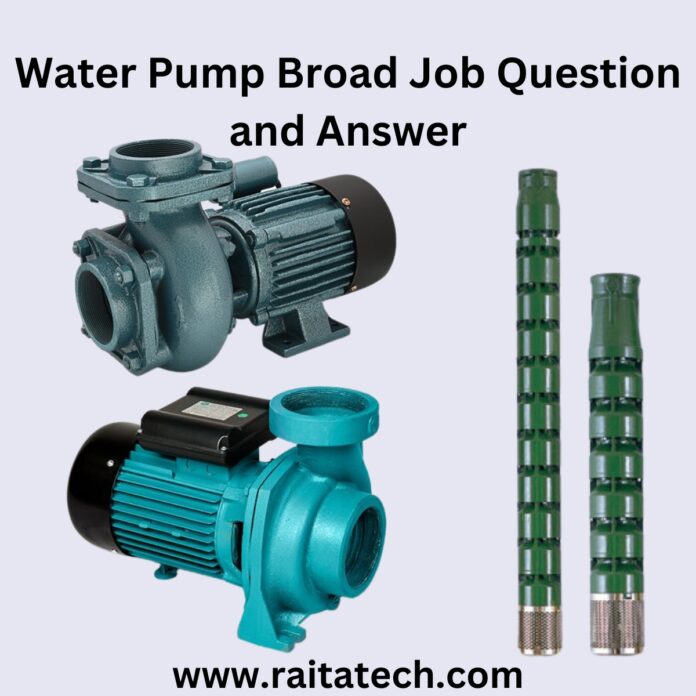Welcome to our website, your ultimate source for all things related to water pumps! Whether you’re a homeowner, a DIY enthusiast, or a professional plumber, we’re here to provide you with the knowledge and expertise you need to tackle water pump jobs effectively. In this article, we’ll address some common questions and provide answers that will help you understand water pump systems and their maintenance. Let’s dive in!
Water Pump Broad Job Question and Answer
- How does a water pump work? A water pump is a mechanical device designed to move water from one location to another. It utilizes an impeller, which rotates to create centrifugal force, pushing water out through a discharge pipe. This continuous motion creates a suction effect, drawing water into the pump and enabling its circulation.
- What are the types of water pumps commonly used? There are several types of water pumps, each designed for specific applications. Some common types include centrifugal pumps, submersible pumps, jet pumps, and booster pumps. Centrifugal pumps are widely used for household and industrial purposes, while submersible pumps are ideal for deep wells and sump pits. Jet pumps are commonly found in shallow wells, and booster pumps increase water pressure in residential or commercial settings.
- How can I determine if my water pump needs repair or replacement? If you notice a significant decrease in water pressure, irregular noises coming from the pump, frequent cycling on and off, or water leaks around the pump, it’s likely that your water pump requires attention. Additionally, a sudden increase in your energy bills can indicate an inefficient or malfunctioning pump. In such cases, it’s best to consult a professional for a thorough inspection and recommendation.
- What maintenance steps should I take to keep my water pump in good condition? Regular maintenance is essential to keep your water pump running smoothly. Some key steps include:
- Checking and cleaning the intake screens to prevent debris from clogging the pump.
- Inspecting and tightening all connections to avoid leaks.
- Lubricating moving parts according to the manufacturer’s recommendations
- Testing the pump’s pressure and adjusting it if necessary.
- Draining and flushing the system periodically to remove sediment buildup.
- Can I install or repair a water pump myself, or should I hire a professional? While some basic maintenance tasks can be performed by homeowners, such as cleaning intake screens or replacing worn-out parts, it’s generally recommended to hire a professional for installation, major repairs, or troubleshooting complex issues. Professional plumbers have the expertise, tools, and experience to ensure the job is done correctly and safely, avoiding potential hazards or costly mistakes.
Conclusion:
We hope this article has provided you with valuable insights into water pump systems and their maintenance. By understanding how water pumps work, identifying signs of potential issues, and following proper maintenance practices, you can extend the lifespan of your pump and ensure consistent water flow in your home or business. Remember, if you’re unsure or encounter significant problems, don’t hesitate to seek assistance from a qualified professional. Stay tuned to our website for more useful tips and information about water pump systems.
The main topic of the post is “Water Pump Broad Job Question and Answer.”


